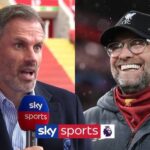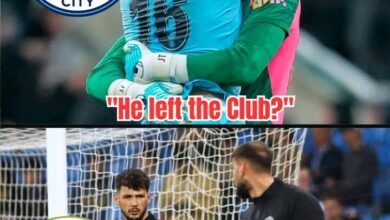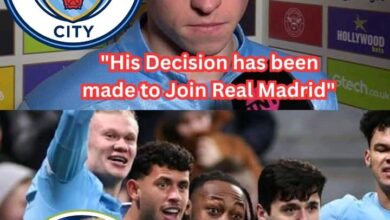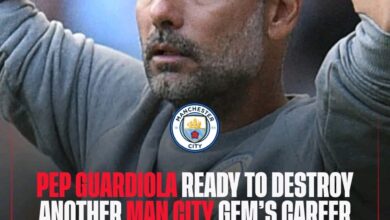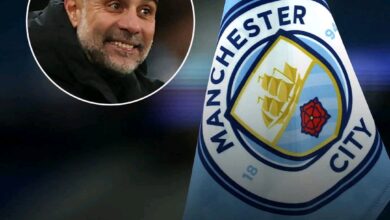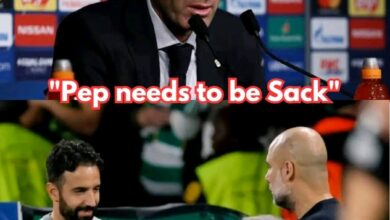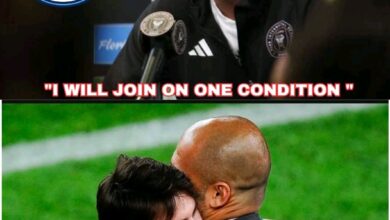Liverpool midfielder reveals the truth behind his summer exit
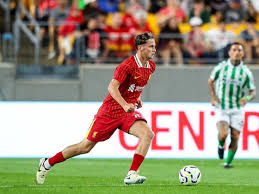
Tyler Morton was once seen as the next great midfielder to come out of Liverpool’s academy. He had the calmness of a veteran, the passing of a master, and the heart of someone born to play for the badge. But when the summer transfer window opened, something unexpected happened. Liverpool agreed to sell him to Lyon for £15 million. For many fans, it felt like a quiet goodbye that made no sense. For Morton, it was the end of a dream he had chased since childhood, but also the beginning of something bigger.
At first, it all looked logical from Liverpool’s point of view. Arne Slot had just arrived as the new manager. He wanted to shape the midfield his own way. Ryan Gravenberch was chosen as the holding midfielder, while Wataru Endo and Stefan Bajcetic were kept for depth. Morton was the one who had to go. But only a few months later, things began to change. The 22-year-old was not struggling abroad—he was shining. In Lyon, he became a fan favourite, controlling games with his composure and intelligence. The same calmness that once defined him at Liverpool’s academy was now lighting up French football.
Liverpool fans who had watched him grow in the youth ranks were not surprised. They had seen his class from early on. They remembered how he dominated midfields in the FA Youth Cup, how he played with maturity beyond his age, and how he always made football look simple. After his brilliant loan spell at Hull City during the 2023–24 season, many believed he was ready to step into Liverpool’s senior rotation. Instead, he was sold. That decision is now being questioned by many, especially with how well he has settled in France.
In a recent interview, Tyler Morton finally spoke openly about why he left Anfield. His words were calm but carried weight. “I think he thought I was a good player, but I don’t feel the trust was there as much,” he told SPORTbible, referring to Arne Slot. “In my opinion, the limited opportunities were down to trust and not ability. When I got my opportunity in the cup, I felt like I played well. That’s all I could say.”
It was an honest confession. There was no anger in his tone, no bitterness. Just truth. Morton’s maturity stood out through every word. “A lot of footballers can be bitter about not playing and let their egos get in the way, but I’m not that type of lad. I personally disagreed with the limited amount of game time I got last season, but that was out of my control. I did everything I could.”
He added that communication with Slot was always respectful, but not enough to change his fate. “I played for the under-21s when a lot of players wouldn’t. I did everything in my power to stay fit and mentally focused for when my time came, and I still got limited opportunities.”
It was clear that for Morton, it wasn’t about a lack of talent—it was about a lack of trust. That was the real heartbreak. Liverpool had a player with both ability and attitude, but the timing never seemed right.
Meanwhile in Lyon, the story has been completely different. Morton didn’t just adapt—he transformed. His passing range, his calm presence, and his ability to dictate tempo have earned him praise across France. Local journalists now describe him as “the quiet engine of Lyon’s midfield.” French fans adore his intelligence on the ball, his awareness, and his fearless tackling. In just a few months, he has gone from being a squad player at Liverpool to one of the most consistent midfielders in Ligue 1.
The numbers tell the story better than words. He ranks among the top players in recoveries, interceptions, and progressive passes. In some areas, he’s outperforming Liverpool’s own midfielders. That has sparked debate among Reds supporters—did the club make a mistake by selling him too early?
The logic behind the sale was simple at the time. Gravenberch was the future, Endo provided experience, and Bajcetic was the young project. But Liverpool has always been a club that values multiple solutions, not just one. Morton had a different profile—more disciplined, more tactical, more suited to controlling rhythm than chasing chaos. He might not have been flashy, but he understood the game in a way few 22-year-olds do.
Now, watching him in Lyon colours, there’s a growing sense of regret. What if Liverpool had kept him for another season? What if Slot had given him more trust? What if patience, not profit, had guided the decision? These are the kinds of questions that quietly echo around Anfield’s corridors when an academy graduate begins to shine elsewhere.
Tyler Morton never left with bitterness. He left with respect. His message to Liverpool fans has always been full of gratitude. He loves the club that raised him. But deep down, he knew he needed to play, to grow, to become the footballer he was meant to be. Lyon gave him that chance.
When asked about the move, Morton said, “Sometimes you just have to take a step back to move forward. I’ll always be thankful to Liverpool for everything, but I’m happy with where I am. I feel trusted here, and that’s everything to a player.”
His performances have been so good that even French pundits have begun to compare him with Premier League midfielders. “He plays like a young Michael Carrick,” one commentator said during a Lyon match. “He’s always two steps ahead in his mind. Liverpool might have let go of something special.”
It’s not often that English players go abroad and instantly adapt to the rhythm of continental football. Morton has done that and more. His quiet leadership on the pitch, his precision in tight spaces, and his constant movement off the ball make him stand out. He plays like someone who understands both sides of the game—attacking and defensive.
Back at Liverpool, Arne Slot has faced questions about the decision. The manager has stood by his plan, insisting that the club needed balance and that Gravenberch was key to that system. But even he must have noticed how Morton is thriving. The irony is that Liverpool’s midfield still lacks depth, especially when injuries hit. And in those moments, fans can’t help but wonder—what if Morton was still here?
For some supporters, the sale symbolizes a growing issue: the club’s struggle to balance trust and opportunity for academy players. Harvey Elliott broke through. Curtis Jones did too. But many others—like Morton—find their path blocked just when they seem ready. It’s a painful reality of modern football, where potential often gives way to transfer market strategy.
But Tyler Morton doesn’t dwell on that. He’s focused on his football. Every game in Lyon is another chance to grow, another chance to prove himself not just to Liverpool but to the whole of Europe. His humility has made him beloved among teammates and fans alike. “He’s a quiet leader,” one Lyon teammate said recently. “He never shouts, but you always feel his presence. He makes the team better just by being on the pitch.”
In Liverpool’s academy, coaches used to say Morton played like he had time on his side. That hasn’t changed. Whether under pressure or surrounded by opponents, he finds calm. That calmness is now the reason Lyon’s fans sing his name.
As weeks turn into months, the conversation about his exit keeps resurfacing in English football circles. Some call it a misjudgment. Others call it necessary evolution. But what no one can deny is that Morton has proven himself. He didn’t need revenge. He just needed a chance.
It’s also worth remembering that Morton’s story isn’t finished with Liverpool. He has never spoken negatively about the club, and he hasn’t ruled out a return. If his rise continues, the door might open again someday. Liverpool fans already whisper it: “Bring him back.”
Arne Slot himself recently hinted at the possibility of recalling a young player amid injury issues. Though he didn’t name anyone, fans instantly thought of Morton. Because sometimes, football writes stories that circle back to where they began.
And if that day comes, it will not be a story of regret—it will be one of growth. The boy who left to find trust could return as a man who earned it.
For now, Tyler Morton is enjoying his life in Lyon. The lights of the Groupama Stadium shine bright every weekend, and he stands calmly at the center of it, orchestrating play, dictating rhythm, and proving that talent never fades—it just finds the right home.
Liverpool may have made a calculated decision in the summer, but football has a way of testing calculations. Sometimes the best equations are emotional, not logical. Morton’s departure might one day be seen as a lesson for the club—to trust its own, to be patient, to remember that some players bloom in silence before the world finally sees their glow.
And if that moment ever comes when he walks back into Anfield wearing Liverpool red again, the applause will be thunderous. Because the fans always knew what he could become. Because deep down, they always believed that Tyler Morton was never gone—he was only waiting for the world to notice.


